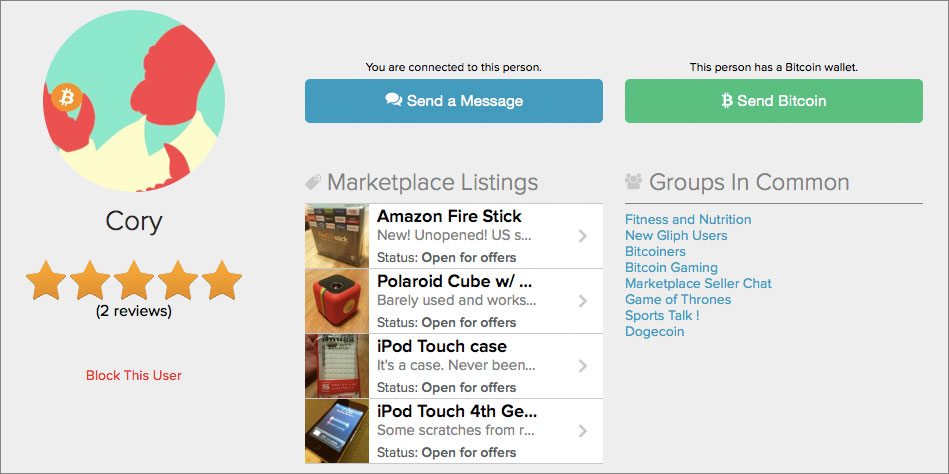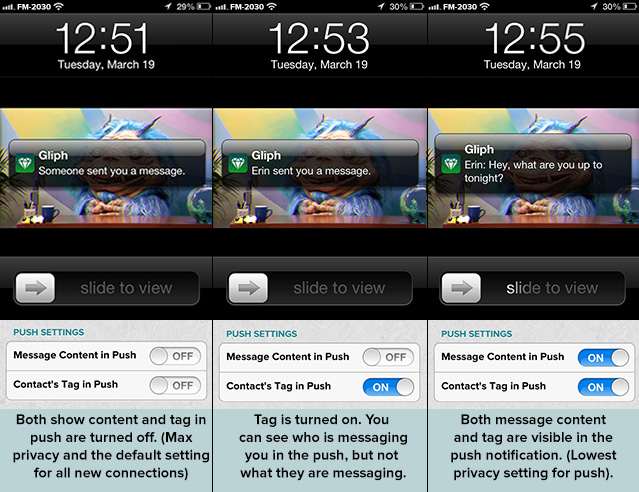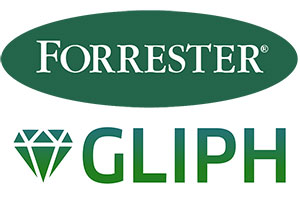You can now set a rating for another person after you’ve completed a transaction with them using Gliph Marketplace. Ratings you’ve received from completing transactions on Gliph will now be recorded and displayed as an average on your Profile.
 Reputation ratings allow you to build up credibility for your account on Gliph. You can use them to help you make a decision as to whether you trust someone before completing a transaction with them.
Reputation ratings allow you to build up credibility for your account on Gliph. You can use them to help you make a decision as to whether you trust someone before completing a transaction with them.
You must complete a transaction using a listing in Gliph Marketplace to be able to assign reputation.
This means if a Bitcoin payment is involved, you must have a Coinbase or Blockchain.info wallet attached and use Deal Flow to make the payment.
If you already completed a transaction in Gliph Marketplace, you should already have received an email allowing you to rate the other person or people you’ve interacted with. Transactions completed outside Gliph Marketplace will not offer a chance to set Reputation.
Gliph Profiles continue to become more useful, showing off information about another user’s Marketplace listings, Groups and Channels in common, whether they have a Bitcoin Wallet attached and now the reputation. This information is in addition to the personal data they’ve chosen to share publicly or privately with you.

This is a screen capture of the current live view of Cory’s Gliph Profile.
We’re excited to see Gliph identity coming into its own with so much useful information!
We’ll be monitoring Gliph reputation to prevent abuse and we plan to increase the depth of information available over time. If you haven’t, get a move on with listing something for sale in Gliph Marketplace to begin establishing your reputation today!
 Have you ever felt the need to turn your phone upside down so people won’t read a message in a push notification?
Have you ever felt the need to turn your phone upside down so people won’t read a message in a push notification?
 Today’s Dropbox is a small but shining invention of our Digital Revolution. Technology startups are now
Today’s Dropbox is a small but shining invention of our Digital Revolution. Technology startups are now  We’re pleased to share that Gliph was included in a
We’re pleased to share that Gliph was included in a